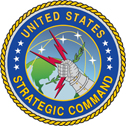
|
NEDERLANDS | ENGLISH
|
|
|
26 September 2005 |
 mail this article
| mail this article
|
 print
| print
|  
This article is part of the series: The coming war against Iran
[ 1 - 2 - 3 - 4 - 5 - 6 - 7 - 8 - 9 - 10 - 11 - 12 - 13 - 14 - 15 - 16 - 17 - 18 - 19 - 20 - 21 - 22 - 23 - 24 - 25 - 26 - 27 - 28 - 29 - 30 - 31 - 32 - 33 - 34 - 35 - 36 - 37 - 38 - 39 - 40 - 41 - 42 - 43 - 44 - 45 ]
The coming war against Iran - Part 1
Serious implications feared
By Daan de Wit
The natural disasters in the United States have not managed to keep plans for attacking Iran from becoming any less of a reality. A war against Iran is seen by the US and Israel as a way to achieve otherwise divergent strategic goals. Military plans, legislation and psychological manipulation are now being fine-tuned and put into place in order to carry out a war against Iran. The Dutch in the original article has been translated into English by Ben Kearney. In two recent articles, author Webster Tarpley observes 'feverish US-UK preparations for a new 9/11 of state-sponsored, false flag synthetic terrorism which is intended in the intentions of the terrorist controllers in London and Washington to set the stage for the attack on Iran, as well as for martial law austerity dictatorships throughout the English-speaking world, and beyond.' Tarpley is the author of a book that deals with the role secret services played in the creation of cover stories for September 11th, as well as how what actually happened on that day was carried out. The book is entitled 9/11 - Synthetic Terror - Made in USA; 'synthetic terror' because the terror on 9/11 has its origins not in "real terrorism" but in the United States itself. He also spoke in Amsterdam, the Netherlands during Jimmy Walters' European tour, which sought to expose the truth of September 11th. I spoke there also. US says military force an option In a wide-ranging article Tarpley points to a statement made by Bush in mid-August in which he asserts that the US will not shy away from the use of military force against Iran: 'As I say, all options are on the table. The use of force is the last option for any president and you know, we've used force in the recent past to secure our country'. Bush's vice-president began banging the drums of war earlier when he said that 'stronger action' was needed if Iran did not comply with demands. Tehran has been just as stern in its pronouncements, notes the BBC: '[Former president of Iran] Mr Rafsanjani said western opposition to Iran's decision to resume its nuclear programme would, as he put it, cost them dearly.' All this talk may be less threatening than it seems. Iran is a large and powerful country, and as we reported earlier under the heading Downing Street Memo's: Iraq war begun before it began, that country has not been slowly ground to a pulp by years of attacks conducted prior to the start of the war, as was the case with Iraq. It is unlikely that a confrontation with Iran will remain a regional matter. Insiders anticipate war against Iran After the US elections secured a second term for Bush, Seymour Hersh made this observation in an article entitled The Coming Wars: ''This is a war against terrorism, and Iraq is just one campaign. The Bush Administration is looking at this as a huge war zone,” the former high-level intelligence official told me. “Next, we're going to have the Iranian campaign. We've declared war and the bad guys, wherever they are, are the enemy. This is the last hurrah—we've got four years, and want to come out of this saying we won the war on terrorism''.' Hersh: 'In my interviews, I was repeatedly told that the next strategic target was Iran. 'Everyone is saying, "You can't be serious about targeting Iran. Look at Iraq,"' the former intelligence official told me. 'But they say, "We've got some lessons learned—not militarily, but how we did it politically. We're not going to rely on agency pissants." No loose ends, and that's why the C.I.A. is out of there.' [...] The hawks in the Administration believe that it will soon become clear that the Europeans' negotiated approach cannot succeed, and that at that time the Administration will act. 'We're not dealing with a set of National Security Council option papers here,' the former high-level intelligence official told me. 'They've already passed that wicket. It's not if we're going to do anything against Iran. They're doing it.'" Military planning for US attack underway A compelling argument to support the premise that a US attack on Iran is not far off can be found in an excerpt from a column entitled Deep Background by Philip Giraldi. Giraldi is an ex-CIA agent and employee of Cannistraro Associates, a company run by Vince Cannistraro, a one-time counter-terrorism chief for the CIA who in his work as a consultant for ABC News reported on the Bush Administration's pattern of deception during the lead-up to the Iraq war. Giraldi wrote his column for The American Conservative, a publication by conservatives who disagree with the neoconservative course of the Bush Administration.  He describes how the military planners of USSTRATCOM, at the direction of the administration, are preparing a conventional and/or nuclear response (i.e., an attack on Iran) to an anticipated hostile act by Iran: 'In Washington it is hardly a secret that the same people in and around the administration who brought you Iraq are preparing to do the same for Iran. The Pentagon, acting under instructions from Vice President Dick Cheney's office, has tasked the United States Strategic Command (STRATCOM) with drawing up a contingency plan to be employed in response to another 9/11-type terrorist attack on the United States. The plan includes a large-scale air assault on Iran employing both conventional and tactical nuclear weapons. [...] As in the case of Iraq, the response is not conditional on Iran actually being involved in the act of terrorism directed against the United States. [...]'. He describes how the military planners of USSTRATCOM, at the direction of the administration, are preparing a conventional and/or nuclear response (i.e., an attack on Iran) to an anticipated hostile act by Iran: 'In Washington it is hardly a secret that the same people in and around the administration who brought you Iraq are preparing to do the same for Iran. The Pentagon, acting under instructions from Vice President Dick Cheney's office, has tasked the United States Strategic Command (STRATCOM) with drawing up a contingency plan to be employed in response to another 9/11-type terrorist attack on the United States. The plan includes a large-scale air assault on Iran employing both conventional and tactical nuclear weapons. [...] As in the case of Iraq, the response is not conditional on Iran actually being involved in the act of terrorism directed against the United States. [...]'.Preparations for war on Iran in full gear  Hersh writes: 'The Administration has been conducting secret reconnaissance missions inside Iran at least since last summer [2004]. Much of the focus is on the accumulation of intelligence and targeting information on Iranian nuclear, chemical, and missile sites, both declared and suspected. The goal is to identify and isolate three dozen, and perhaps more, such targets that could be destroyed by precision strikes and short-term commando raids. 'The civilians in the Pentagon want to go into Iran and destroy as much of the military infrastructure as possible,' the government consultant with close ties to the Pentagon told me. Some of the missions involve extraordinary coöperation. For example, the former high-level intelligence official told me that an American commando task force has been set up in South Asia and is now working closely with a group of Pakistani scientists and technicians who had dealt with Iranian counterparts." Hersh writes: 'The Administration has been conducting secret reconnaissance missions inside Iran at least since last summer [2004]. Much of the focus is on the accumulation of intelligence and targeting information on Iranian nuclear, chemical, and missile sites, both declared and suspected. The goal is to identify and isolate three dozen, and perhaps more, such targets that could be destroyed by precision strikes and short-term commando raids. 'The civilians in the Pentagon want to go into Iran and destroy as much of the military infrastructure as possible,' the government consultant with close ties to the Pentagon told me. Some of the missions involve extraordinary coöperation. For example, the former high-level intelligence official told me that an American commando task force has been set up in South Asia and is now working closely with a group of Pakistani scientists and technicians who had dealt with Iranian counterparts.""There has also been close, and largely unacknowledged, coöperation with Israel. The government consultant with ties to the Pentagon said that the Defense Department civilians, under the leadership of Douglas Feith, have been working with Israeli planners and consultants to develop and refine potential nuclear, chemical-weapons, and missile targets inside Iran. [...] 'They believe that about three-quarters of the potential targets can be destroyed from the air, and a quarter are too close to population centers, or buried too deep, to be targeted,' the consultant said. Inevitably, he added, some suspicious sites need to be checked out by American or Israeli commando teams—in on-the-ground surveillance—before being targeted.' In February The Washingon Post writes: 'The Bush administration has been flying surveillance drones over Iran for nearly a year to seek evidence of nuclear weapons programs and detect weaknesses in air defenses, according to three U.S. officials with detailed knowledge of the secret effort. [...] The aerial espionage is standard in military preparations for an eventual air attack and is also employed as a tool for intimidation.' But also: '"It was clear to our air force that the entire intention here was to get us to turn on our radar," the official said. That tactic, designed to contribute information to what the military calls an "enemy order of battle," was used by the U.S. military in the Korean and Vietnam wars, against the Soviets and the Chinese, and in both Iraq wars. "By coaxing the Iranians to turn on their radar, we can learn all about their defense systems, including the frequencies they are operating on, the range of their radar and, of course, where their weaknesses lie," said Thomas Keaney, a retired U.S. Air Force colonel and executive director of the Foreign Policy Institute at Johns Hopkins University. But it did not work. "The United States must have forgotten that they trained half our guys," the Iranian official said.' Ex-Labour Minister Tony Benn writes in an editorial in The Guardian about the mode of attack: 'It is inconceivable that the White House can be contemplating an invasion of Iran, and what must be intended is a US airstrike, or airstrikes, on Iranian nuclear installations, comparable to Israel's bombing of Iraq in 1981. Israel has publicly hinted that it might do the same again to prevent Iran developing nuclear nuclear weapons. Such an attack, whether by the US or Israel, would be in breach of the UN Charter, as was the invasion of Iraq. But neither Bush, Sharon nor Blair would take any notice of that.'
____________________________________________________________________________
DeepJournal Sign up for the free mailing list. |